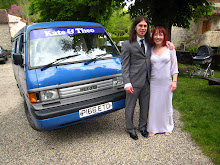Open appreciation of the tiny cuteness of our little daughter from total strangers - who even stop you in the street to marvel at her - is something we're rapidly getting used to here. It's very touching. And at times a tad embarrassing. The only time I've ever seen Theo experiencing acute discomfort at being the centre of attention was when we were in the supermarket with Rosie cuddled up to her daddy's chest in the sling. Suddenly he was surrounded by rapturous women and children all fascinated by Rosie's sleeping face peeking out at them. Momentarily, we were a phenomenon.
There are also certain questions that I am now well primed to answer. After the cries of "Que chicatita!" etc. this is how it goes:
1. How old is she?
2. What is her name?
3. Are you breast feeding?
Numbers 1. and 2. are probably fairly universal and I would expect to be asked the same thing by people I had only just met in the UK. Number 3, probably not. But here it seems to be a perfectly legit follow up to the first two. On our way back from a medical appointment the other day, Theo (with Rosie in the sling) and myself found ourselves flanked on the metro by (in his case) an old gentleman and (in my case) and genial middle-aged black woman. Both asked the breast feeding question and both then launched into a lively examination of the subject, including their own experiences relating to it and questions about how we were doing.
In fact breast feeding seems to have become the number one parenting issue when it comes to babies nowadays. This is the current trend - back in the seventies it was all about potty training. Not surprising really, seeing that in the last thirty years bottle feeding had virtually become the norm until a determined campaign that "breast is best" raised awareness of the eminent suitability of mother's milk to give an infant the best start in life. Well, I agree that it's the best thing, but there's no doubt, the zealousness of the campaign can lead to unbearable pressure on new mothers, especially those who don't find breast-feeding easy, for any one of a number of reasons.
My own experiences of breastfeeding have given me first hand realisation of how emotionally draining and exhausting it can be. I noted the ease by which my sister breastfed all four of her children and while I didn't assume breastfeeding would be problem-free for me, I didn't actually prepare myself for that possibility. So when my baby wasn't interested in taking my milk direct from me I was distraught. It felt like a personal rejection. Exhausted and hormonal, I cried my eyes out when my repeated efforts to put Rosie to the breast (without the intermediary of silicone nipple shields) were in vain.
In the end, that cheapest and most convenient of infant feeding modes proved to be anything but for us. We spent hundreds of euros on equipment, including bottles, steriliser, pumps and lactation aids. My initial feeding regime involved patient attempts to coax Rosie onto the breast (which would take more than an hour and a half sometimes) in order to get some milk from me, plus supplementation from bottles and (later) a tube feeder, then another half hour or so spent expressing to keep up my supply and to provide breast milk for the top-ups. This was part of a 24-hour two-and-a-half hourly feeding regime - so very little time for me to do anything in between. Thankfully, Theo took care of everything else we needed, so I could devote myself 100 per cent to feeding Rosie.
Well, after a few weeks of this, I am pleased to report that it worked. One by one, the various pieces of equipment have been stashed away and now Rosie breastfeeds as if she had never done anything else. I am relieved and pleased that we have got to this point, but I wonder how I would manage if I had this situation with a second child, for example. The luxury of a "babymoon" - taking to bed with the baby and doing almost nothing except feed - would no longer be possible, for example. No wonder so many women give up and start giving their babies bottles of formula. It's definitely the easier option. If I have ever passed judgement on mothers giving their babies bottles of formula, then I publically apologise. Breastfeeding - if you are unlucky - can be fraught with complications and that's the last thing you need when recovering from giving birth and doing your level best to nurture your newborn. But I am chuffed that I can answer "yes" when people in Spain I have never met before ask me the question.
Subscribe to:
Post Comments (Atom)




No comments:
Post a Comment